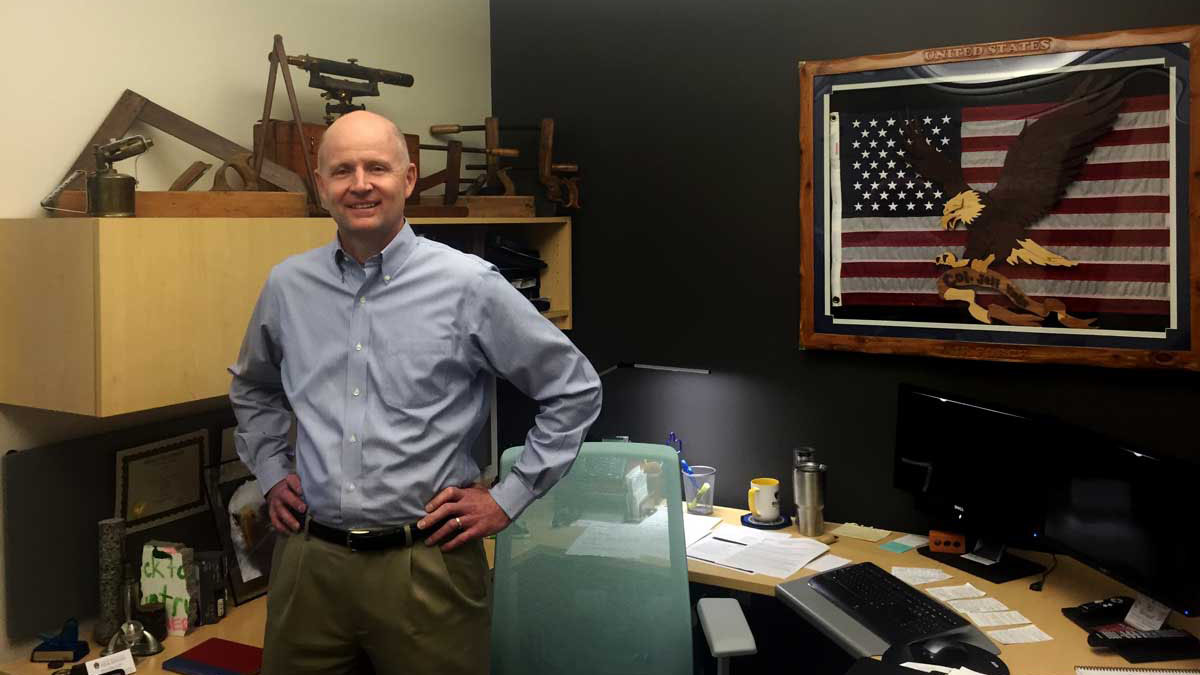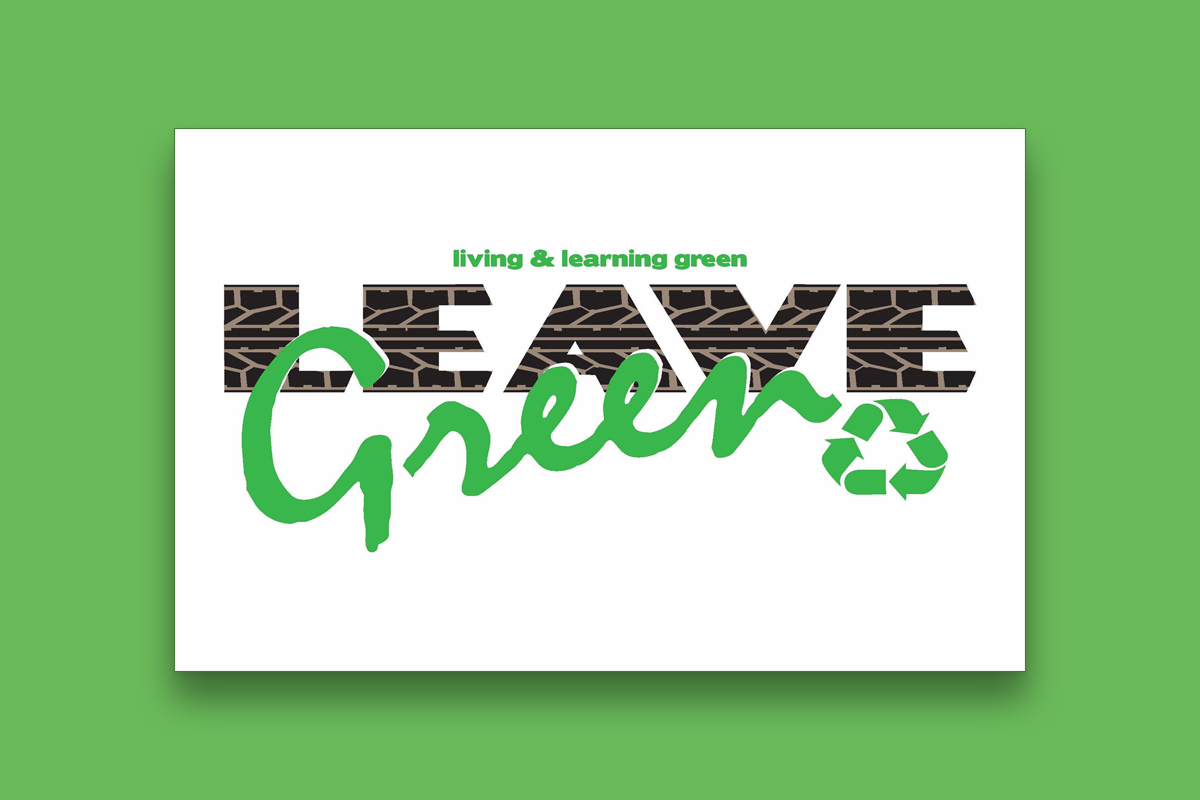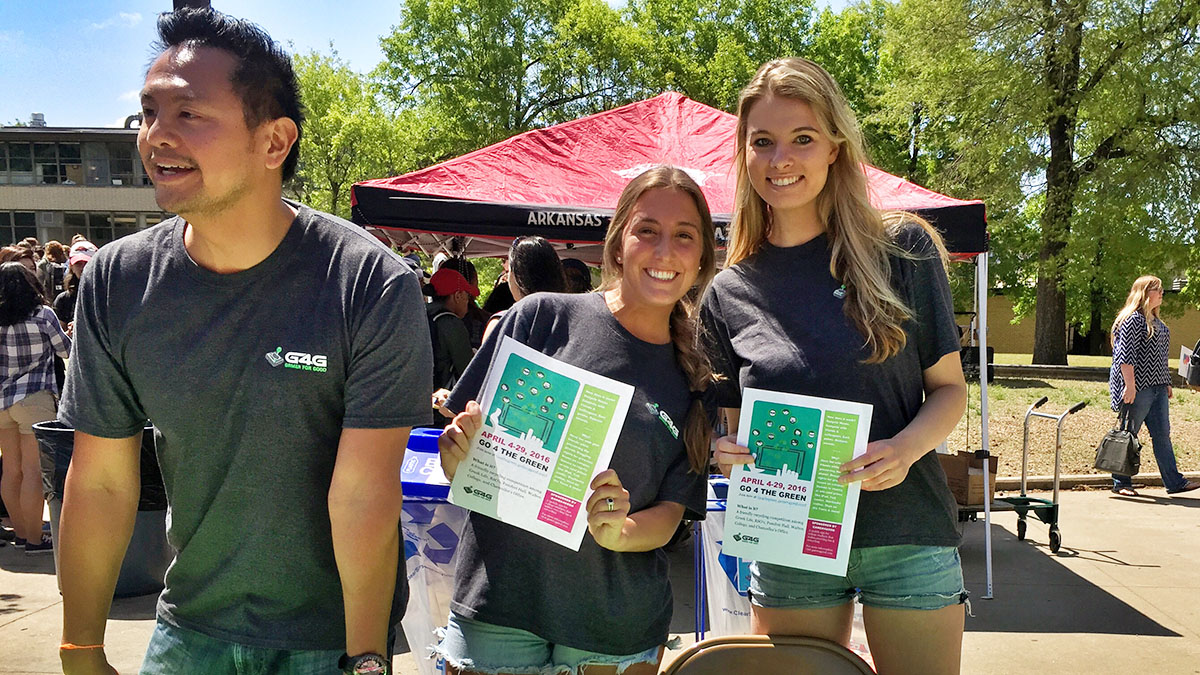Pictured above: Jeff Vinger directs residential facilities for University Housing. He’s a Recycling Renegade because of his ongoing efforts to guide the university toward the goal of being a Zero Waste Campus by 2021. | Staff submitted
Here in University Housing, we have a continual focus on recycling. We recognize that recycling will help the planet, but recycling is also part of a much bigger goal the University has set for itself: Zero Waste by 2021.
Luckily, we have great strategies and wonderful champions for the cause. Across campus we are increasing recycling and educating students on sustainable efforts. We have even recently created a sustainability minor. We also have Recycling Renegades who constantly work to increase our diversion.
Jeff Vinger, Director for Residential Facilities is one of these champions.
Since his time growing up on a dairy farm, his love and passion for sustainability pushes him to change the way University Housing looks at recycling. I asked Jeff some key questions about recycling, zero waste, and his time on the dairy farm.
What is zero waste?
This means that at least 90 percent of all waste produced on campus must be kept out of the landfill. Which is also called diversion. As of 2014, we sit at about 17 percent diversion as a campus.
We have a lot of work to do.
Luckily, we have great strategies and wonderful champions for the cause! Across campus we are increasing recycling and educating students on sustainable efforts. We have even recently created a sustainability minor. We also have Recycling Renegades who constantly work to increase our diversion.
We are lucky to have Recycling Renegades for the cause both in and outside of University Housing.
Jeff Vinger, Director for Residential Facilities is one of these champions.
Since his time growing up on a dairy farm, his love and passion for sustainability pushes him to change the way University Housing looks at recycling. I asked Jeff some key questions about recycling, zero waste, and his time on the dairy farm.
1. Why is Zero Waste such an important goal for the University?
As a signatory to the American College and University President’s Climate Commitment (ACUPCC), the University of Arkansas committed to becoming carbon neutral by the year 2040.
To support this noble effort, the University of Arkansas committed to becoming a Zero Waste Campus by 2021. This is an aggressive goal and an important goal for a number of reasons.
We ultimately want to be good stewards of our environment and help to preserve the finite resources of our planet.
We want to reduce or avoid the large volume of waste filling our landfills every day and we want to realize the economic benefits of reducing our volume of waste as costs are continuously increasing on tipping fees to remove our mountains of trash.
By reducing our waste, we can reduce operating expenses and future fees to our residents. Finally, achieving Zero Waste plays a significant role in reducing our greenhouse gas footprint and emissions directly supporting our commitment to achieving the ACUPCC carbon neutrality commitment.
2. What impact will it have on the campus and the community?
Achieving Zero Waste will have a significant impact on the campus and community. However, achieving this goal will be impossible without the commitment and participation of all students, faculty and staff.
There will need to be some infrastructure changes made to our facilities to support separation of waste streams for recycling, storage areas for reusable items and new systems for collection of compostable organics.
Also, there will need to be continuous education of our residents to think about the items they are bringing to campus, purchasing, using and then discarding. If we fail to engage the populous we’ll have no choice, but to invest in alternative and costly means of dealing with our waste hiring additional labor and even third party vendors to deal with our waste.
This cost will impact our budgets, services, programs and ultimately translate to fees we all pay.
3. What is the best way to help the cause? The best way to help the cause is simply to participate, adopt a new and simple habit of sorting your trash and minimizing what is actually sent to the landfill.
It’s not hard and it doesn’t take much time to throw things in the right bin.
There is lots of information available to learn more about what is and isn’t recyclable and about the carbon footprint for each item we choose to purchase.
If you’re inclined to learn more, get involved with the Campus Sustainability House’s various workgroups, projects, events and other opportunities.
4. How does sustainability personally impact your life?
For me personally, sustainability has always been a way of life. I grew up on a dairy farm and most all of our food was organic from our farm.
We were composting before composting was “cool”.
My first master’s degree was in environmental engineering focusing on water and wastewater treatment including design of landfills and treatment of the toxic leachate emanating from these landfills.
I have two waste cans at home, one for landfill trash the other for recyclables. I make it a sport to set out an empty landfill trash can each week next to an overflowing recycle can just to see the reaction on the Waste Management drivers face.
Likewise, there are countless thrift stores around NWA that will gladly accept donations of nearly any usable item, we make monthly deliveries diverting additional items from the landfill.





Recent Comments